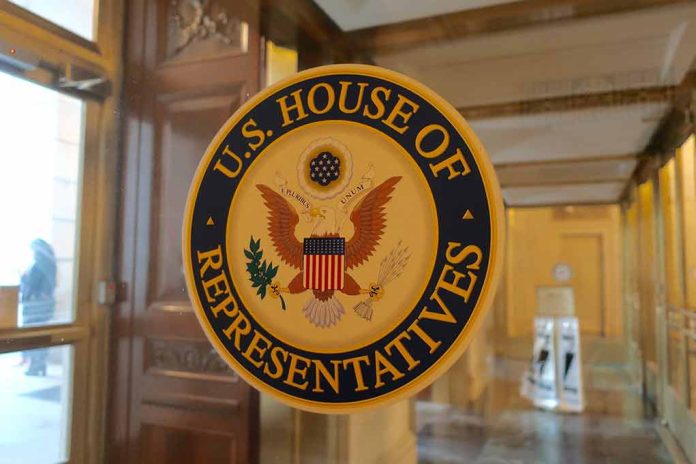
House passes HALT Fentanyl Act, reclassifying the deadly drug as Schedule I alongside heroin and LSD, but Senate hurdles remain.
Key Takeaways
- The House of Representatives passed the HALT Fentanyl Act with a 312-108 vote, receiving bipartisan support.
- The bill aims to permanently classify fentanyl-related substances as Schedule I drugs, indicating no accepted medical use and high abuse potential.
- Fentanyl was involved in approximately 70% of over 107,000 drug overdose deaths in the U.S. during 2023.
- The legislation seeks to close the “analogues loophole” and empower law enforcement to target producers and distributors.
- The bill now faces a critical Senate vote, requiring a 60-vote majority to become law.
Bipartisan Effort to Combat Fentanyl Crisis
In a significant move to address the ongoing opioid epidemic, the House of Representatives has passed the HALT Fentanyl Act with a resounding 312-108 vote. This bipartisan effort, supported by 98 Democrats and 214 Republicans, aims to permanently classify fentanyl-related substances as Schedule I drugs, placing them in the same category as heroin and LSD. The legislation comes as a response to the alarming rise in fentanyl-related deaths across the nation.
Rep. Morgan Griffith (R-Va.) highlighted the severity of the issue, stating, “According to the DEA’s 2024 National Drug Threat Assessment, fentanyl remains the primary cause of the ongoing epidemic of drug poisoning deaths in the United States.” This assessment underscores the urgent need for immediate legislative action to combat the fentanyl crisis.
Do you see the number of Democrats who voted no on the HALT Fentanyl Act.
This should tell you everything you need to know about the Democratic Party. pic.twitter.com/p2LjXwccWF
— Mark of the BEAST (@MarkOftheBEAS14) February 6, 2025
Closing the “Analogues Loophole”
A key aspect of the HALT Fentanyl Act is its aim to close the “analogues loophole,” which has allowed drug traffickers to evade restrictions by slightly altering fentanyl’s chemical structure. By permanently scheduling fentanyl-related substances, the bill seeks to prevent criminals from exploiting legal technicalities and continue distributing these deadly drugs. “It empowers law enforcement to seize those deadly drugs and go after their producers and distributors and stop the flow,” explained House Speaker Mike Johnson (R-La.), emphasizing the bill’s potential impact on curbing the fentanyl epidemic.
While the bill has garnered significant support, some critics argue that it could lead to an increase in domestic prison populations without effectively reducing overdose deaths. However, proponents of the legislation stress that it allows for medical research on fentanyl analogs and does not hinder the necessary medical use of fentanyl when appropriate.
The Road Ahead: Senate Vote and Implementation
With the House approval secured, the HALT Fentanyl Act now moves to the Senate, where it faces a critical vote. Previous versions of the bill failed to gain traction under Democrat leadership, but supporters are hopeful for a different outcome this time. The legislation’s temporary Schedule I classification, first enacted in 2018, is set to expire on March 31, adding urgency to the Senate’s decision.
Sources:
House passes bill elevating fentanyl to Schedule I drug — joining heroin, LSD and marijuana
The HALT Fentanyl Act gives Americans hope
House Passes HALT Fentanyl Act Amid Trump’s Drug Trafficking Crackdown



